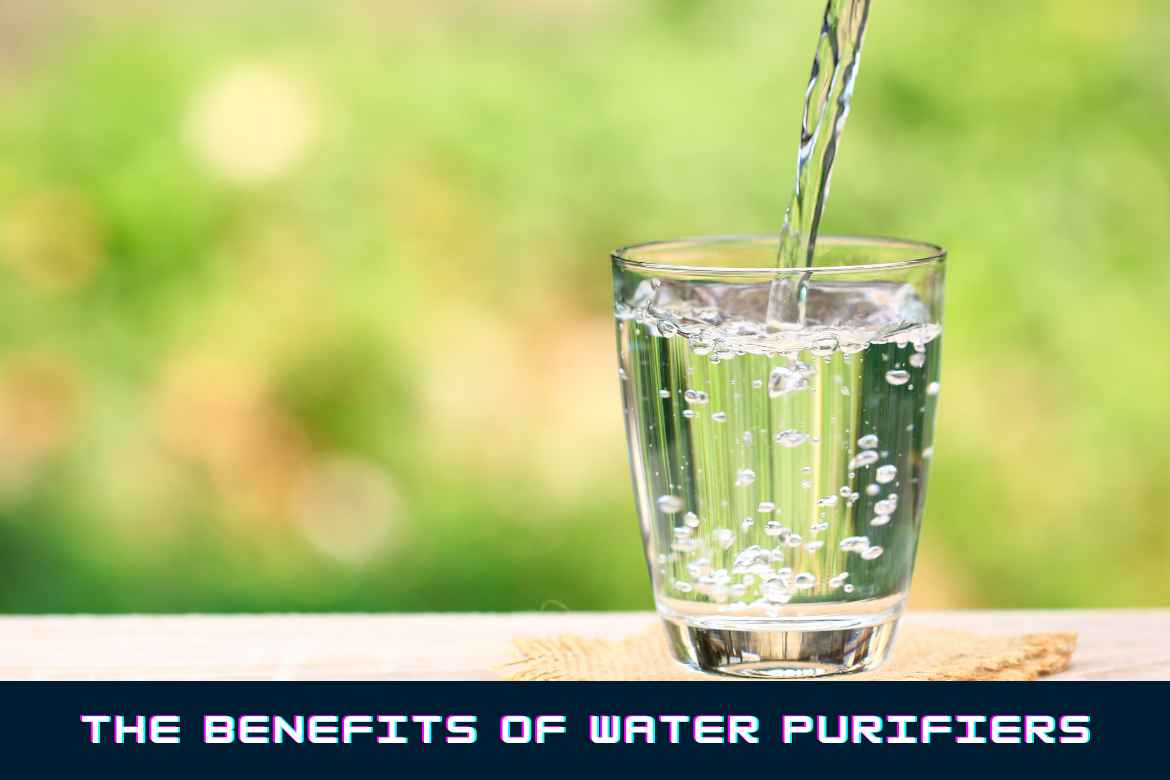Water, the elixir of life, is essential for our survival as living and breathing creatures. We rely on it not just for quenching our thirst but also for maintaining our bodily functions, staying hydrated, and promoting good health. However, the quality of the water we consume is equally crucial as its quantity. Clean drinking water plays a vital role in safeguarding our health and protecting us from the adverse effects of waterborne contaminants.
Clean drinking water is more than just a luxury; it is a basic human right. The World Health Organisation (WHO) estimates that unsafe water and inadequate sanitation cause approximately 829,000 diarrheal deaths each year, with children being the most vulnerable. According to another report from UNICEF and WHO, as of the most recent data, nearly 2.2 billion people worldwide still lack access to safe drinking water, and around 4.2 billion people do not have safely managed sanitation services as well. These staggering numbers highlight the urgent need to address water quality issues and provide accessible, clean drinking water to everyone.
By shedding light on the myriad benefits of water purifiers, we aim to raise awareness about the positive impact these systems can have on individuals, communities, and the planet as a whole. Whether you are a health-conscious individual, an environmentally conscious citizen, or someone looking to make a wise investment for your household or business, understanding the benefits of a water purifier will undoubtedly help you make informed decisions to secure a safer and more sustainable future too.
Table of Contents
ToggleThe Need for Water Purification
1. Contaminants Present in Untreated Water and Their Potential Health Risks
- Microorganisms: Harmful bacteria, viruses, and parasites are common in untreated water sources, especially in areas with poor sanitation. These microorganisms can cause waterborne diseases such as cholera, gastroenteritis, and hepatitis, leading to severe dehydration and even death, particularly in vulnerable populations like children and the elderly.
- Chemical Pollutants: Chemical substances like chlorine, fluoride, lead, mercury, arsenic, and pesticides often find their way into natural water sources through industrial discharges, agricultural runoff, and improper waste disposal. Ingestion of these toxic chemicals can result in a range of health issues, including neurological disorders, developmental problems, and an increased risk of certain cancers.
- Heavy Metals: Water sources situated near industrial areas or mines may contain elevated levels of heavy metals. Prolonged exposure to heavy metals like lead and mercury can lead to severe organ damage, cognitive impairment, and developmental delays in children.
2. Government Regulations and Water Quality Standards
To address the escalating concerns about water quality, governments and international organisations have established stringent regulations and water quality standards. These standards aim to ensure that the water provided for public consumption meets certain criteria, reducing the health risks associated with contaminated water.
However, despite these regulations, ensuring water quality at a local level can still be challenging. Ageing infrastructure, natural disasters, and limited resources in some regions can impede the delivery of safe drinking water to all communities. As a result, many individuals and households are taking matters into their own hands by investing in water purifiers.
Environmental Benefits of Water Purifiers
1. Reducing Plastic Waste from Bottled Water Consumption
2. Lowering the Carbon Footprint Associated with Bottled Water Production and Transportation
Because making, packaging, and shipping water bottles takes a lot of energy, the bottled water business has a big carbon footprint. To make plastic bottles, a lot of fossil fuels are needed, and shipping them over long distances adds more carbon emissions to the mix.
Switching to water purifiers significantly reduces the need for bottled water production and transportation. With water purifiers conveniently installed in homes, offices, and public spaces, individuals can access clean drinking water directly from the tap, negating the need for bottled water. This transition can substantially cut greenhouse gas emissions associated with the bottled water industry, contributing to global efforts to combat climate change.
3. Decreasing the Strain on Natural Water Sources
Natural water sources, such as rivers, lakes, and aquifers, are finite resources that require responsible management to sustain their ecosystems and ensure a consistent supply of clean water for communities. However, the increasing demand for bottled water and untreated water consumption strains these precious resources.
Water purifiers offer an alternative solution by providing a means to purify and utilise local water sources responsibly. By treating and consuming water from the existing municipal supply or well water, individuals reduce their dependence on commercially bottled water and alleviate pressure on natural water sources too. This conservation effort ensures that future generations can continue to benefit from clean and accessible water sources, preserving the delicate balance of our ecosystems.
4. Purifying Water: Benefits to Humans and the Environment
Investing in water purifiers has numerous positive outcomes for both people and the planet. We unwittingly join a bigger movement towards environmental preservation and sustainable living when we choose to use water filters for our health.
By reducing plastic waste, lowering carbon emissions, and conserving natural water sources, water purifiers empower individuals to make a positive impact on the environment. Embracing these systems not only ensures a healthier and safer water supply for ourselves but also contributes to the well-being of the planet as a whole.
Economic Benefits of Water Purifiers
1. Calculating the Cost-Effectiveness of Using Water Purifiers vs. Purchasing Bottled Water
At first glance, purchasing bottled water might appear to be a convenient option. However, over time, the expenses associated with buying bottled water can accumulate significantly. Bottled water, being a commodity, often comes at a higher cost per gallon compared to tap water.
However, on the other hand, water purifiers are both affordable and long-term solutions. Once set up, they offer a steady supply of pure water at a fraction of the price of bottled water. In the long run, homes and companies can save a lot of money by not having to buy disposable plastic water bottles, for sure!
2. Long-Term Savings on Medical Expenses Due to Improved Health
Clean and purified water is essential for optimum health. Individuals and families can lower their risk of becoming ill from waterborne diseases and exposure to dangerous chemicals by investing in water purifiers. This can result in long-term savings on medical bills as well.
Waterborne illnesses can result in doctor visits, medication costs, and even hospitalisation, all of which incur substantial financial burdens. By ensuring access to safe drinking water through water purifiers, people can protect themselves from water-related health issues and avoid the accompanying medical expenses.
Moreover, the benefits of consuming clean, purified water extend beyond avoiding immediate health risks. Proper hydration and the consumption of contaminant-free water contribute to overall well-being and can lead to improved productivity, reduced sick days, and a better quality of life—all of which translate into financial savings over time.
3. Financial Incentives and Rebates for Water Purifier Installations
Alkaline RO Water Purifier Benefits and UV Water Purifier Benefits
1. Alkaline RO Water Purifier Benefits
- Removal of Contaminants: Heavy metals, dissolved salts, pesticides, and other dangerous chemicals can all be removed from the water with the help of an alkaline RO water purifier’s multi-stage filtration process. A high degree of water purity is achieved thanks to the RO membrane’s semi-permeable nature, which allows only pure water molecules to flow through while inhibiting contaminants.
- Alkaline Water pH: The capacity of alkaline RO water purifiers to mildly alkalinize the water they purify is one of their main selling points. Because it aids in the neutralisation of acidic waste products and the promotion of greater hydration, alkaline water is thought to provide possible health benefits. Drinking alkaline water is associated with purported health benefits, including detoxification, metabolic enhancement, and general well-being, according to its proponents.
- Essential Mineral Retention: While alkaline RO water purifiers remove harmful contaminants, they also retain essential minerals like calcium, magnesium, and potassium, which are vital for good health. This feature ensures that the purified water is not only clean but also enriched with essential minerals that contribute to our nutritional needs.
2. UV Water Purifier Benefits
- Microorganism Elimination: UV water purifiers expose the water to ultraviolet radiation in order to kill any bacteria, viruses, or parasites that may be present. These bacteria become sterile and unable to reproduce as a result of the sun’s UV radiation damaging their DNA. This method adds another safeguard against the spread of waterborne illness.
- Chemical-Free Purification: UV water purifiers do not rely on chemicals like chlorine or iodine for disinfection, making the water treatment process entirely chemical-free. As a result, the purified water maintains its natural taste and odour, ensuring a refreshing drinking experience without any chemical aftertaste.
- Continuous Water Flow: UV water purifiers deliver a constant stream of cleansed water on demand, unlike some other water purification methods that may require storage tanks. Tanks aren’t necessary, and the water won’t sit around and breed bacteria thanks to this handy feature.
Convenience and Accessibility
1. Availability of Water Purifiers for Various Settings
Water purifiers come in a variety of sizes and models, catering to different needs and spaces. From compact countertop units suitable for small apartments to larger under-sink or whole-house systems for family homes, there is a water purifier to fit any living situation. These versatile purification systems also extend beyond residential use.
Offices, schools, gyms, and public spaces can all benefit from installing water purifiers. In these settings, where a diverse group of people come together, access to clean drinking water is essential for everyone’s well-being. Public places equipped with water purifiers promote a healthy and environmentally responsible lifestyle, encouraging people to opt for purified water rather than relying on single-use plastic bottles.
2. Ease of Maintenance and Filter Replacement
Water purifiers are designed to be user-friendly with straightforward maintenance requirements. Regular maintenance typically involves cleaning and sanitising the unit, as well as changing the filters at recommended intervals. Filter replacement is a critical aspect of water purifier maintenance as it ensures the system continues to deliver high-quality, purified water.
Fortunately, most modern water purifiers come with easy-to-follow instructions for filter replacement. Some units even have automated alerts or indicators to remind users when it’s time to change the filters. This user-friendly design ensures that water purifiers remain in optimal condition with minimal effort, providing a consistent supply of clean water.
3. Assurance of Safe Water During Emergencies and Natural Disasters
Natural disasters and emergencies, such as floods, hurricanes, or earthquakes, can disrupt water supply infrastructure and contaminate local water sources. In such dire situations, access to safe drinking water becomes a matter of survival.
Water purifiers offer a valuable lifeline during these challenging times. Equipped with advanced purification technologies, certain water purifiers can effectively remove contaminants from compromised water sources, providing a reliable source of safe drinking water when it’s needed most.
During times of crisis, having access to purified water is crucial to the safety of individuals, families, and communities. Having access to clean water during disaster relief efforts can ease the burden on emergency resources and lessen the likelihood of waterborne diseases, too!
Final Words
Yes, water purifiers play a pivotal role in securing a healthier, more sustainable future for individuals, communities, and the planet. With the alarming global water quality challenges and the environmental impact of bottled water, investing in water purifiers offers multifaceted benefits. By removing contaminants, conserving natural water sources, and reducing plastic waste, these systems positively impact both human health and the environment.
Moreover, the economic advantages, including long-term savings on bottled water expenses and potential medical costs, make water purifiers a smart investment. Their convenience, accessibility, and reliability during emergencies further underscore their importance. Embracing water purifiers is not just a choice; it’s a responsible step towards safeguarding our precious water resources and ensuring a better tomorrow for generations to come.

